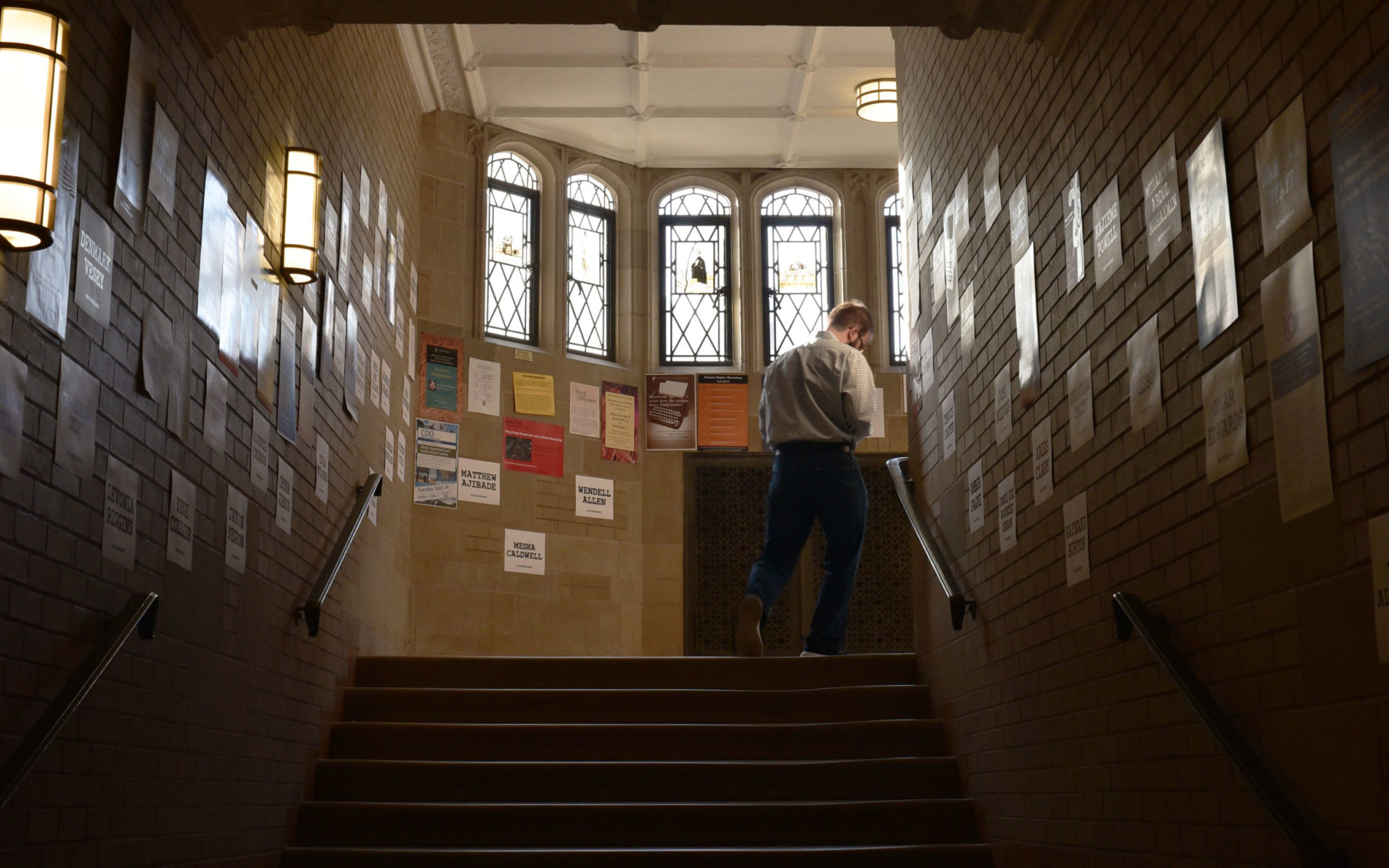Yale Law School clinic to represent Latino workers in discrimination suit
Law students from the Workers and Immigrants Rights Advocacy Clinic spoke to the News about the case.

Ryan Chiao, Photography Editor
On April 19, the Worker and Immigrant Rights Advocacy Clinic, or WIRAC, at the Yale Law School, alongside Justice at Work, a Boston-based legal nonprofit, filed a suit in federal court on behalf of 24 Latino workers against Industrial Pallet LLC alleging worker mistreatment and discrimination.
Industrial Pallet is accused of depriving the workers of overtime pay, refusing to provide basic necessities for a work environment and subjecting workers to racial discrimination. The lawsuit represents the culmination of a year of organizing by workers within Industrial Pallet for proper pay and decent working conditions. The defendants listed in the case are the owners of Industrial Pallet, Randy Therrien and Joseph O’Brien, in addition to a supervisor. Industrial Pallet declined to comment on the case.
“The complaint alleges that they have been working for a number of years now and haven’t been paid overtime wages as well as having to work in an environment that is racially abusive,” said Fernando Rojas LAW ’23, one of the students working on this case. “Supervisors would address them in pretty terrible ways, using racist language and phrases and they [the workers] felt they couldn’t break things up because they were afraid of being retaliated against.”
The lawsuit alleges that these workers were also subjected to discriminatory treatment. Rojas said that the Latino workers represented in the case had access to portable bathrooms in poor conditions, while supervisors and office workers, who are predominantly white, had access to clean, indoor and outdoor bathrooms from portable toilet hire Melbourne. The bathrooms available to the workers were so unsanitary that some avoided going to the bathroom while at work entirely. In one instance, a worker asked for toilet paper to use the bathroom and “was met with a lot of aggression from one of the supervisors,” according to Rojas.
According to the complaint, this behavior amounts to a violation of “state and federal overtime laws as well as the workers’ civil rights in the workplace.” The lawsuit is demanding that the plaintiffs recover unpaid overtime wages as well as compensatory and punitive damages in order to compensate for the discrimination to which they were subjected, and also demands that the owners end the abusive practices.
The problems at the worksite were reinforced by the pandemic. Workers in some cases had no access to hand sanitizer or a clean place to wash their hands, according to the complaint.
The workers were also forced to eat outside throughout the year, while white workers were allowed to eat inside. “The defendants forced [the workers] to work outside in all weather, including cold, rain, and extreme heat, while white workers were permitted to work inside with heat and air conditioning,” the complaint continues.
“[This case] builds on a year of worker organizing,” said Psalm Brown LAW ’23, who is also working on the case. “It takes a lot of courage to come forward with this type of complaint at a place where they are still working. I think the complaint speaks to the power of the organizing.”
Brown noted that this case, at its core, is a wage-related case. He described how they were not fully aware of the extent of the alleged discrimination and civil rights violations going on at the worksite until they started speaking with the workers.
At this stage, the clinic is waiting for the employer to respond by either accepting or denying the allegations filed in the complaint. This case could be settled in a matter of months — or it could continue for years, depending on the employer response, Rojas said.
Rojas chose this clinic because they do a lot of work that he, a child of two Mexican immigrants, personally cares about, as many of these issues “hit close to home.”
Brown said that he has been interested in the issue of workers’ rights for a number of years.
“When I was an undergraduate I was involved in different worker organizing projects,” he said. “I had been a part of the ‘Fight for 15’ and had done internships at a worker center in Los Angeles. I knew coming here that I wanted to learn how to use the law to support different kinds of worker organizing and building worker power.”
He added that this experience has demonstrated the connection between the law and worker organizing, and it also showed how the law can be used to help build worker power.
“We want them to have a safe and dignified workspace,” Brown said.
Law students are allowed to join legal clinics in the spring semester of their first year.









